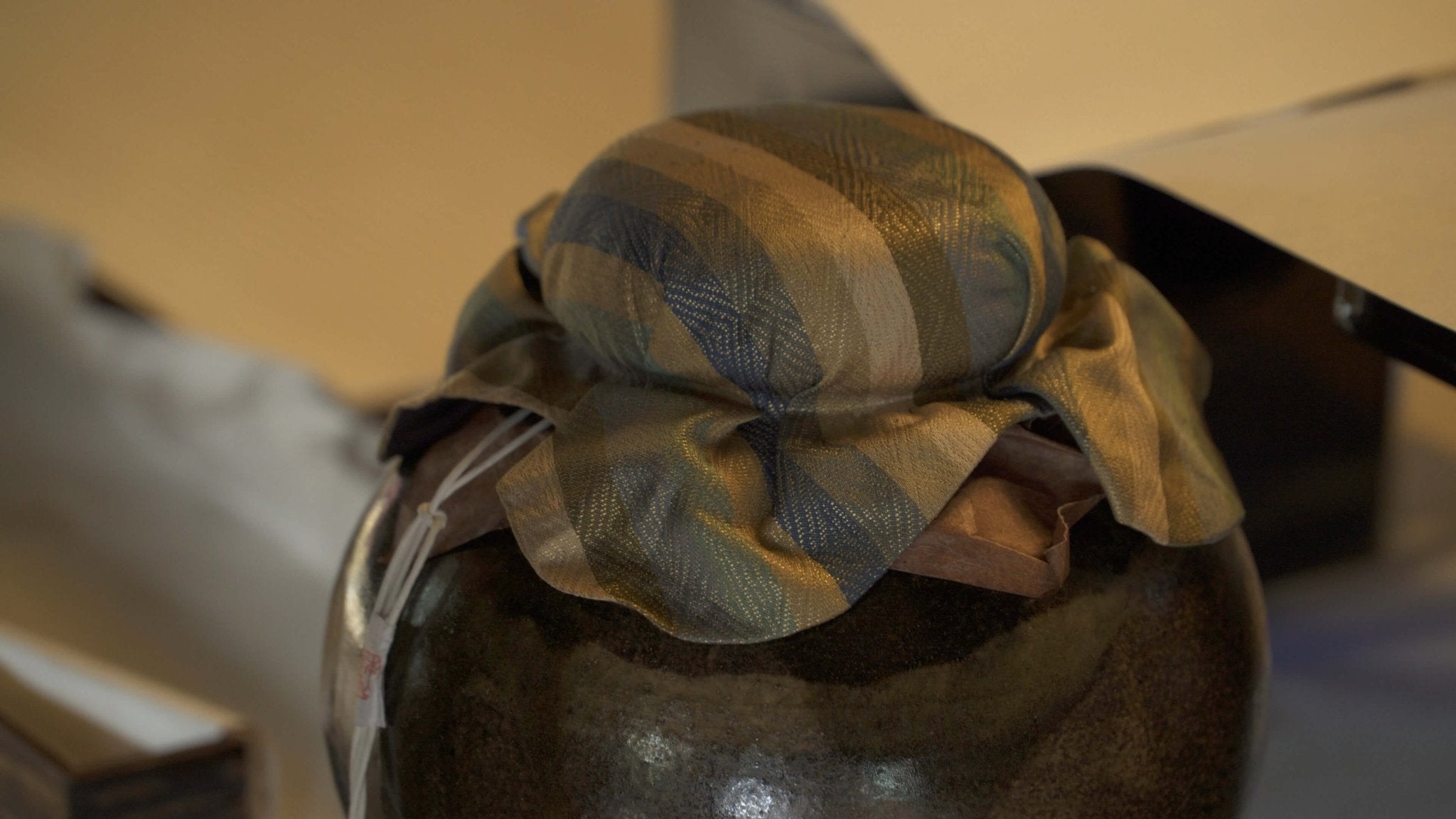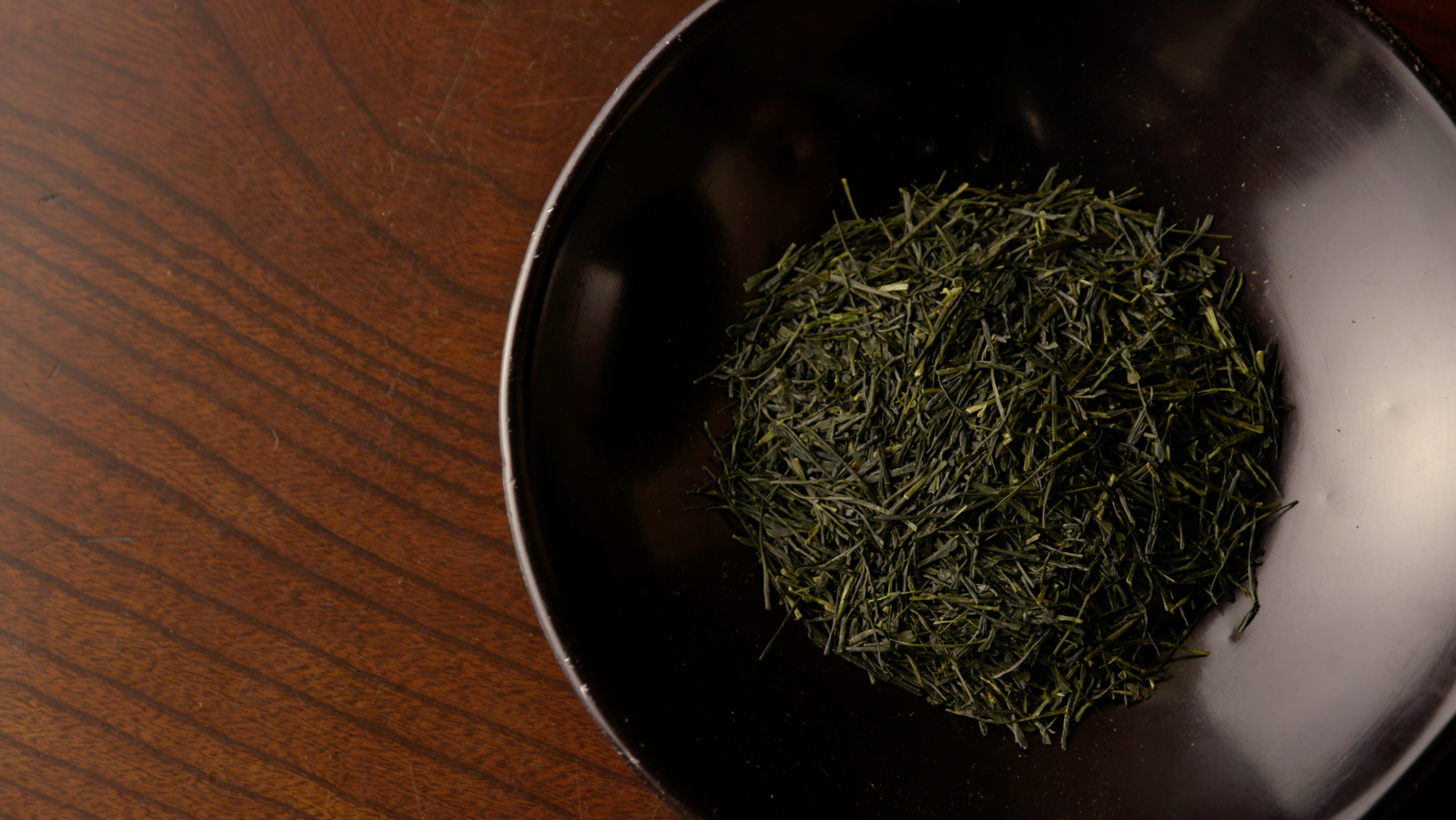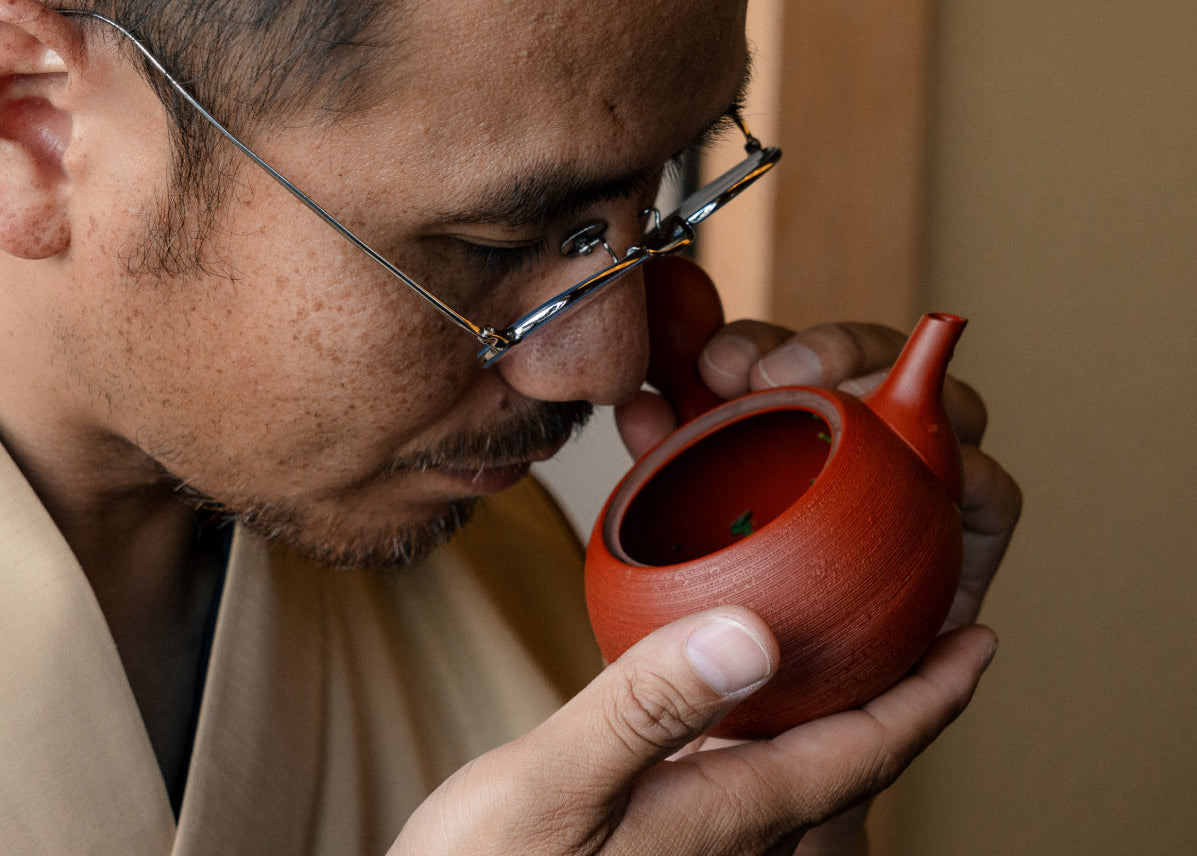

Have you ever wondered how aging affects the flavors of Japanese tea? 🌿
In this article, we delve into the fascinating concept of "Kojuku" (後熟), or aging tea, as explained by our tea master, Mohei. Learn how this traditional practice transforms the flavors and aromas of Japanese tea, creating a unique experience.
Kojuku, written as "後熟" in Chinese characters, combines "後" (after) and "熟" (ripen) to describe the process of post-ripening or aging tea. Unlike Shincha, which celebrates the freshness of the first harvest, Kojuku focuses on maturing the tea leaves to develop a more rounded and mellow flavor over time.This practice dates back centuries and has been refined by generations of tea masters. However, the technique has not been made public and remains unknown to this day.

Light:Exposure to sunligh can degrade the quality of tea, causing it to lose its vibrant color and fresh taste. Historically, tea leaves were stored in dark, cool rooms to preserve their quality.
Temperature: High temperatures can accelerate the deterioration of tea, leading to a loss of flavor and aroma. The traditional method of storing tea was to store it in tea jars in tea storehouses built in cool places. (due to frequent earthquakes people didn’t build underground cellars).
Humidity: Moisture can cause mold to grow and spoil the tea. In some regions, humidity levels are naturally optimal for tea storage, but modern methods now often involve refrigeration equipment to maintain ideal conditions.
Air: Oxygen exposure can oxidize the tea, changing its flavor profile and color. Tea jars, airtight containers made of materials such as clay or porcelain, have been used for centuries to protect tea from the atmosphere. After the development of tea boxes made of wood and galvanized iron in the early Meiji period, tea boxes came to be used to store and transport tea leaves. Today, tea is packed into sturdy bags with multiple layers, which are vacuum-sealed to remove all air, and then stored in cardboard boxes.
Aging tea is an art that requires precision. When done correctly, the tea develops a more rounded and mature flavor. However, if any of the key elements above are not controlled, the tea can deteriorate, losing its desired qualities.
A tea that has been aged successfully for nine years in a refrigerator, away from light, air, and humidity will retain its green color and fresh aroma. In contrast, another tea stored improperly for 15 years will display a whitish or reddish hue and a musty smell.
When tasting aged tea, you can expect a more mellow and rounded flavor compared to fresh tea. The aging process removes the rough edges, creating a smoother and more complex taste.
Conversely, deteriorated tea will taste flat and stale, with a noticeable loss of its original vibrant flavors.
Some tea connoisseurs compare the experience of tasting aged tea to savoring vintage wines, where the passage of time enhances the complexity and depth of the beverage.

To avoid pitfalls of deteriated tea and enjoy the benefits of aged tea, at home, store you tea in a dark place. Avoid high temperature and keep your tea in a cool environment and prevent moisture by storing it in a dry place. Finally, make sure to limit air exposure, as much as possible using airtight containers.
Read our Tea Storage Guidlines article for best practices and container comparison!
The journey from fresh Shincha to aged Kojuku reflects the depth and complexity of Japanese tea culture. Both fresh and aged teas have their unique charms, and understanding the differences can enhance your tea-drinking experience. Proper storage and aging can transform your tea into a rich, complex beverage that offers a unique glimpse into the artistry of Japanese tea.
We encourage you to explore the world of aged teas and experience the unique flavors and aromas that Kojuku has to offer. Happy brewing and enjoy the journey through the world of Mohei’s tea! Stay tuned for more insights into the rich heritage and diverse flavors of Japanese tea. Follow us on our social media channels for the latest updates and exclusive content from Tea Master Mohei.